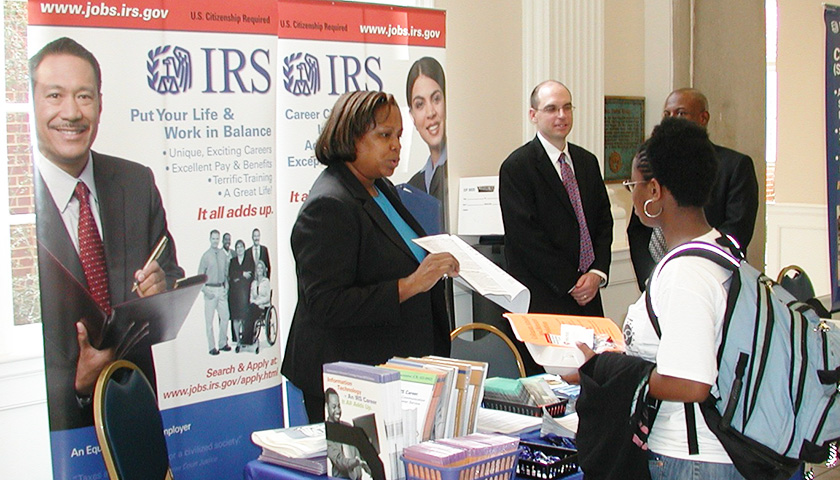by Eric Lendrum
In a statement on Thursday, the Internal Revenue Service (IRS) declared that it will hire almost 30,000 new employees over the next two years, as part of an $80 billion investment plan.
As reported by the Washington Free Beacon, the moves are part of the agency’s broader Strategic Operating Plan, aimed at increasing its workforce and implementing new technologies for the alleged purpose of increased efficiency, stricter tax enforcement, and improved customer service.
From the new funding, approximately $8.64 billion will be spent during the fiscal years of 2023 and 2024, and at least 8,782 new hires during that same time period will be purely for the enforcement staff. The agency has already hired at least 5,000 new employees to work in taxpayer services, for such purposes as answering telephones, processing tax returns, and reopening taxpayer assistance centers that had previously been closed.
The 148-page plan determines that total customer services hiring will add 13,883 new full-time employees over the next two fiscal years, with many of them expected to replace the roughly 12,000 retirements that are expected over the same time period.
“The IRS is going to hire more data scientists than they ever have for enforcement purposes,” said U.S. Deputy Treasury Secretary Wally Adeyemo.
The $80 billion comes from the so-called “Inflation Reduction Act” that was passed by Congress last year and signed into law by Joe Biden. Despite its name, the bill has little to do with inflation and instead focuses more on implementing “green energy” initiatives and increasing the sizes of certain federal agencies, including the IRS.
As a result of the increased taxation due to the new hires by the IRS, the Congressional Budget Office (CBO) estimates that the agency will generate roughly $204 billion in new revenue over the next ten years, which will largely go towards paying for the numerous massive investments made by the Inflation Reduction Act in the first place.
– – –
Eric Lendrum reports for American Greatness.
Photo “IRS Career Fair” by carmichaellibrary. CC BY 2.0.





All increased taxes on the middle class will do is reduce their standard of living and put many more small businesses out of business. A more economically beneficial plan would reduce taxes and regulations while unleashing the energy sector to produce more energy, including fossil fuels and nuclear. Additionally, the federal government must spend less, especially patronage going to firms that exclusively support the party in power, so that the dollar doesn’t continue to lose its value. IRS also has to reduce the amount of fraud among those who steal from government programs, whether social security retirement or Medicare or schemes to replace lost income from often misguided federal policies like lockdowns during epidemics.